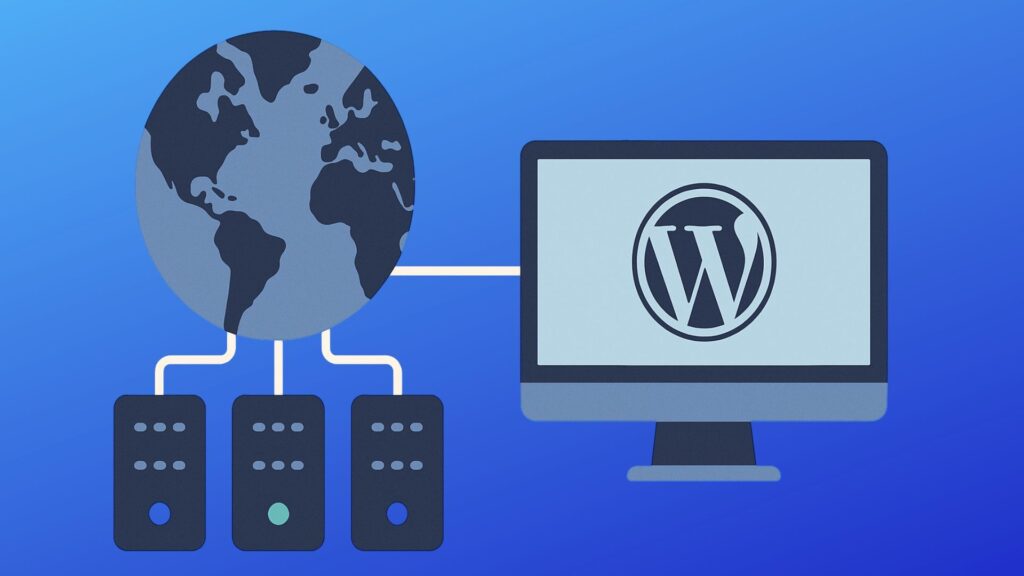If you manage a WordPress site, you’ve likely come across the term content delivery network or CDN. With increasing attention on website speed, performance optimization, and user experience, many site owners wonder: Do I really need a CDN for my WordPress website? The short answer is, it depends. This article will guide you through how it works, the benefits it offers, and how to determine whether a CDN is right for your site.
Key Takeaway:
A content delivery network improves WordPress site speed, reduces server load, and enhances security. It is recommended for sites with high traffic, global audiences, or media-heavy content. Smaller, local sites with low traffic may not require one immediately.
How CDNs Work with WordPress
A CDN, short for content delivery network, is a global network of servers that work together to deliver content to users from the server closest to them. Instead of relying on a single server or origin server, it stores copies of static files, such as images, CSS, and JavaScript, across multiple data centers. When someone visits your site, the CDN helps ensure your website content, especially static content, loads quickly by pulling it from the server closest to the user.
For a WordPress website, this means less strain on your hosting server, faster load time, and smoother performance. CDNs work alongside your existing hosting plan, not as a replacement, and can be easily integrated through a WordPress plugin or external CDN service.
Key Benefits a CDN Provides to WordPress Websites
Utilizing a CDN can significantly enhance your site performance. Since it reduces the distance data has to travel, it results in faster load times, particularly for global visitors. This type of optimization enhances both the user experience and your site’s search engine ranking. A faster WordPress site can have a direct impact on your SEO, bounce rates, and conversion metrics.
A CDN also helps manage traffic spikes by distributing the load across a network of servers, thereby reducing the risk of slowdowns during periods of high activity. If you’re running a popular website, especially one with rich media or video content, it ensures consistent performance for all website visitors.
Another critical benefit is security. A CDN provides features that help protect your website from threats, such as DDoS attacks. Some CDNs, such as Cloudflare, offer built-in security features, including firewall rules, bot mitigation, and Secure Sockets Layer (SSL) integration, to protect your WordPress site from malicious traffic.
When a CDN Might Be Essential for Your WordPress Site
You likely need a CDN if your site meets certain criteria. For instance, if you have a self-hosted WordPress site with a global audience, it can significantly reduce delivery times and ensure consistent access, regardless of the user’s location.
Sites that rely heavily on static files, images, or video also benefit from a CDN, as it can serve that content faster and more efficiently than a single server could. If you’re using WordPress for eCommerce, online education, or media publishing, it becomes essential to accelerate the delivery of website content and maintain smooth performance during traffic spikes.
Additionally, if your hosting plan has limited bandwidth or struggles under load, integrating a CDN like Cloudflare can offload traffic, reduce server costs, and provide a more scalable infrastructure.

When You Might Not Need a Content Delivery Network?
While the advantages of using a CDN are clear, some WordPress site owners may not see a measurable difference. If your audience is local, your site is light on media, and you’re hosted on a high-performance managed WordPress service, you might not immediately benefit from using a CDN.
In such cases, your site already loads quickly, and introducing unnecessary complexity might be counterproductive. Some features might overlap with built-in hosting optimizations or caching tools you’re already using. Additionally, low-traffic personal blogs or development environments typically don’t require an extra layer of protection.
Even if the impact isn’t immediately noticeable, adding a CDN is a smart move that can only help in the long run.
CDN Integration with WordPress: What It Takes
If you decide your site would benefit from a performance boost, the integration process is simple. Many services offer setup through WordPress plugins, and some hosting plans include built-in support. One of the most trusted names in the industry is Cloudflare, the largest and most widely used content delivery platform globally.
At WBS, we eliminate the complexity of manual setup and third-party plugins. Our Hosting services come with fully integrated Cloudflare, the industry’s most trusted and best CDN provider, giving your WordPress site an instant advantage in speed, security, and global delivery.
Getting started typically involves connecting your site, choosing which content should be cached and distributed, and adjusting performance preferences. Thanks to intuitive dashboards and automation, most users can activate these features without needing technical expertise.
Conclusion
So, do you need a content delivery network for your WordPress site? If you’re aiming for faster load times, stronger SEO, better performance, and added protection, especially for a growing or global audience, the answer is likely yes. Offloading traffic from your origin server and distributing your content through a global network can make a measurable difference in speed and reliability.
However, if your site is local, low-traffic, and already optimized with solid hosting and caching, adding a delivery network may not be urgent. That said, understanding how these systems work and keeping the option open as your site scales is a smart move.
Whether or not you implement one should come down to your site’s needs, not trends. Focus on what enhances performance, fosters growth, and provides a better experience for your visitors.


